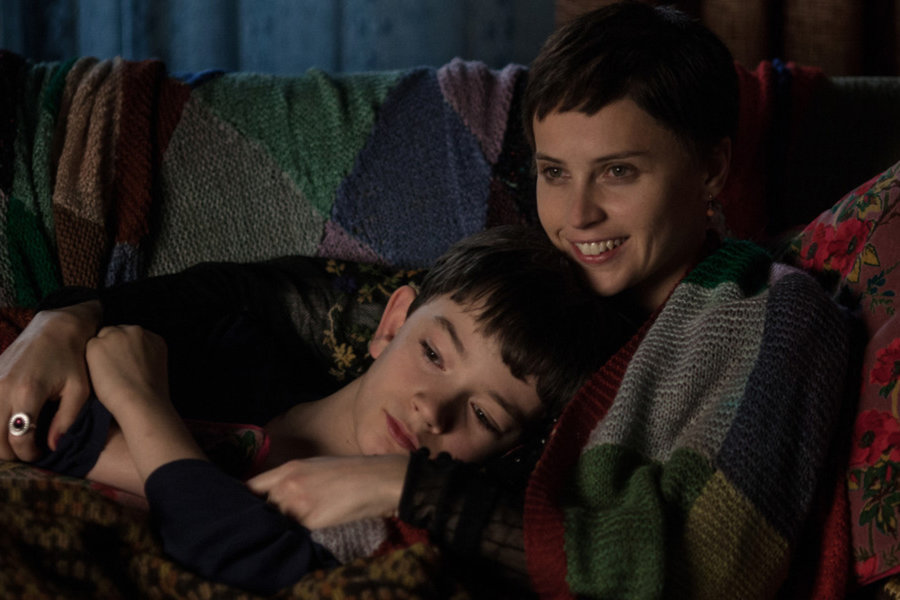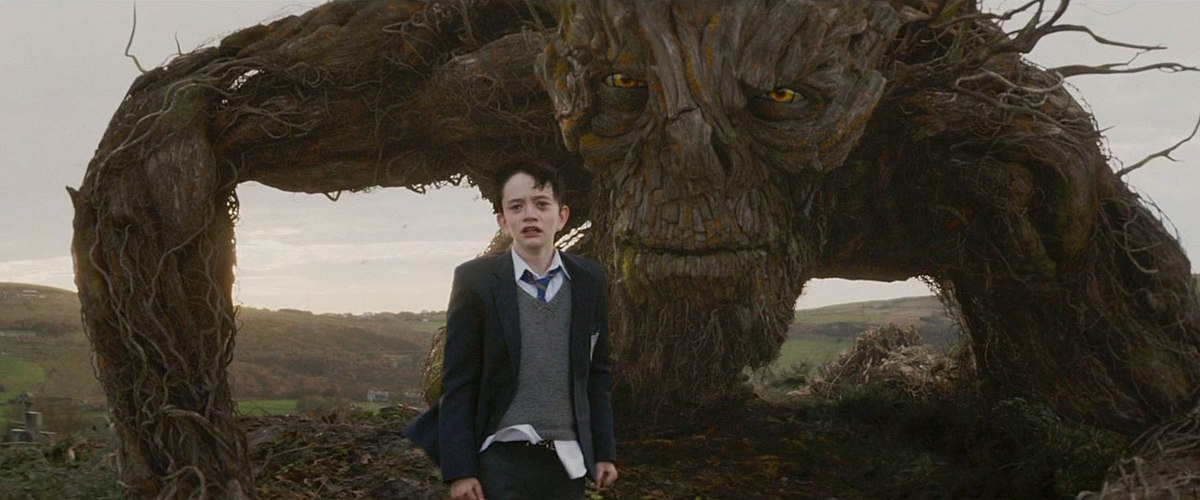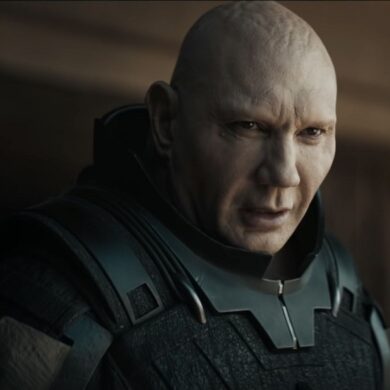The titular monster of A Monster Calls
is that of a giant yew tree, sprung to terrifying life with what appears to be magma flowing through its roots. At least that’s the form that directly appears to young Connor (newcomer, but soon to be household name, Lewis MacDougall). Over the course of the film it takes many shapes and sizes, not all of them literal. This yin and yang dichotomy also threatens to tear things apart, which is a shame, because, as far as affecting family fantasies go, this is near the top.
In a quaint, small, seemingly idyllic English town, a boy “too old to be a child, but too young to be a man” struggles live a normal life. All due to the complication of his ailing Mother (Felicity Jones), an overbearing Grandmother (Sigourney Weaver), a school bully, and worse yet, a constant horrific nightmare. If only someone would come to his aide.
Problem is, Connor isn’t in need of a monster, or at least believes he doesn’t, nor does he recollect calling one to begin with. To him it is just another obstacle that life has decided to put in his way. He is too tired, too broken down and too worried about his mother to deal with such nonsense. As matters should prove though, this isn’t a typical monster. This giant tree (voiced by Liam Neeson), states sternly that he has come to claim Connor, but before he does so, he will tell him 3 stories, to which he adds “then you will tell me a fourth and it will be the truth. The truth you hide, your nightmare”. This strikes Connor as funny, since he has no time for silly stories and has nothing possibly to hide. The next night, as the time draws near though, he awaits the coming tales. Oh, and what tales they are.
Not wanting to limit mixing the real with the fantastical, director J.A. Bayona decides instead to double down, having the tales The Monster tells play out in a combination of watercolors and CGI. Channeling a mix of Guillermo Del Toro and Edward Gorey,the stories act as a series of mini morality plays, letting the dark undertones of the film twist and contort. Each one is more astonishing than the one before, both in tone and content. How they reflect back onto the actions of the story may seem a little trite, but strike a chord that reverberates deep and true.

That triteness, unfortunately, partially wears out its welcome. The problem that continually rears its ugly head in A Monster Calls
, is that of Bayona’s distrust of the audience. He pushes where he should pull back, cut where he should linger, as well as piling heaps of insurmountable weight to scenes that already bare a heavy load. Acts such as these take a genuinely moving moment to the point of maudlin moroseness. Often he tries the opposite tactic minutes later, adding further to the incongruity. Thankfully, the strength of everyone on screen, with a dutiful assist by Patrick Ness, adapting his own novel, right the course, stripping characters down to their rawest emotions. It connects more than enough. Some viewers will be more affected than others, but it just speaks to the acts on display. What seems hardest to convey, flows naturally. Looks shared between 2 people speak volumes more than any monologue. The most powerful moment in the film actually plays out just so. A shared pain that goes unspoken, as the visage of mask and shield seem more important. So the only natural outlet is that of anger, done however rashly. It all feels entirely human with the added bonus of including no more than a handful of words.
Take for instance Toby Kebbell’s Dad. While at first he appears to be simply one note, he reveals himself to be imbued with a sense of warmth and wry humor. He takes Connor to an amusement park, constantly making sure to bring a smile to his son’s face. Not necessarily an act, Dad nevertheless is revealed to be another in a long line of disappointing fathers, but here we see the cost and toll it takes on both parties. Kebbell creates a man who understands his mistake, unable to convey to his son how sorry he is and how much he understands he is hurting. “Most of us just get ‘messily ever after’, and that’s all right”. It is Connor, though, who sees that his father is little more than a mirage and with that knowledge makes a choice of acceptance and absolution that no one should have to do at such a young age.

A Monster Calls is never shy about its intentions, which is to get whomever is watching the film to emote. Beneath that there lies something more, an examination of what it feels like to allow oneself to truly grieve. Following these roots down even further, it’s a story about how people believe they protect one another, without giving any agency or thought to what strength may reside in that other person. The thing with grief and loss isn’t in the fear of letting go, it’s the fear of forgetting. While many technical aspects of Bayona’s work so far – which includes The Impossible and The Orphanage –
have him compared to the likes of Steven Spielberg and Del Toro, he lacks the urgency or trust of a master craftsman. A good director makes an audience feel with the slightest of pin pricks, a great director makes you cry for days without even realizing it. It does feels like a crime to bemoan the slightest of false starts, in an otherwise astounding feature. Maybe Bayona will be visited by his own monster and when he time comes for him to tell the fourth tale, it will be the work of such staggering honesty and beauty, that we herald the coming of a raw new talent. Until then, messily ever after will have to be enough.



